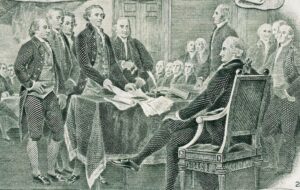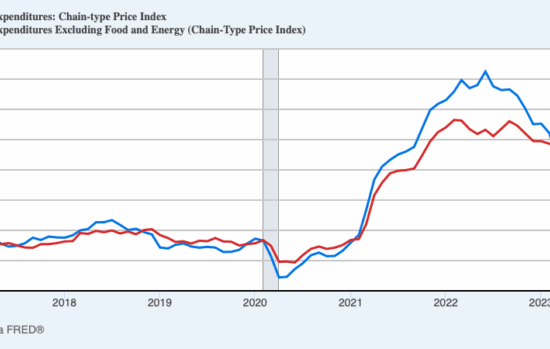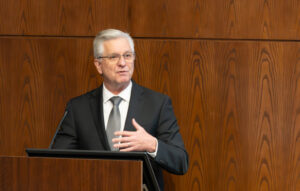The idea that people have an unalienable right to pursue their own happiness is a very radical idea. Prior to the eighteenth century, almost no one in the world believed it. Even today, only a small sliver of humankind agrees with it.
Equally radical is the idea that the only purpose of government is to protect that right. We can quibble about some of the details, but the central idea is unequivocal. If you and I both have the right to pursue our own happiness, it would be wrong for a government to impose burdens on you just to make me happier.
Critics of this political philosophy invariably note that some of the authors of the Declaration of Independence owned slaves. But remember, just about everyone else in the world at the time thought that there was no such thing as an individual right. In recognizing that some people had rights, the founders opened a door that would inevitably extend to everyone else.
Their declaration of the right to representation and self-governance initially applied to the free, property-owning men of thirteen North American colonies. Thanks to their foresight, we’ve been extending the right to pursue happiness to more Americans ever since.
A Radical Declaration: All Men Are Created Equal
The Declaration of Independence was written at a time when the world was undergoing two major changes — both of which made the Declaration possible.
One major change was intellectual: a radical shift in thinking about the relationship of human beings to one another. Today it is called The Enlightenment or the Age of Reason. In place of domination by the Church or the State (empire or monarchy), Enlightenment thinking held that human beings were independent moral entities who should deal with each other on the basis of reason, persuasion, and voluntary exchange.
Stephen Pinker has devoted an entire book to the idea that The Enlightenment is the reason why we are not living at the subsistence level today — grubbing around in the forest for roots and berries, as our ancestors lived for several hundred thousand years.
The other major change was economic.
Prior to the eighteenth century, most people in most places could probably not have survived under the political arrangement envisioned by the Declaration of Independence.
Our distant ancestors were hunter-gatherers who lived in small groups. They existed at the subsistence level, and they were continually at war with other tribes. In hunting and gathering and in making war, they relied on cooperative action, in which individuals subordinated their short-term self-interest to the long-term welfare of the group.
Think about a troop of soldiers on a military mission. If each one pursued his own happiness, the mission would never be achieved.
Our distant ancestors, like that military troop, were at war with other tribes and at war with nature. Since they had no markets and no government (at least as we know those institutions today) they relied very heavily on cultural norms to enforce cooperative activities.
Cultural rites and rituals celebrated self-sacrifice — heroism in battle, risk-taking in the pursuit of large game, diligence in gathering food and other cooperative duties. People were encouraged to think of the entire tribe as extended kin. Other tribal inhabitants were seen as family, not parties to exchange. Outsiders were enemies.
In time, the tribal life that dominated human existence for over 200,000 years began to give way to the marketplace.
People began to view strangers in other communities as trading partners rather than military adversaries. Specialization and trade began to link people who lived in distant places. Tribes grew into cities, and specialization and trade replaced kinship relations in local communities as well.
One recent paper, though writing of more recent market developments, summarizes trade’s pro-social benefits by noting that: “increased market access fostered universalism, tolerance, and generalized trust.” When we are supported in predictable patterns of cooperating with strangers, we extend trust and willingness to transact beyond our tribal and kin-based ties.
In the communities populated by our distant ancestors, an individual could do the most good for others around him by sacrificing his own self-interest to the whole group. In an interconnected marketplace, an individual could do the most good for the most others by pursuing his own self-interest, providing something others wanted to buy.
It may be no coincidence that the Declaration of Independence was published in the same year as Adam Smith’s The Wealth of Nations. By 1776, the best minds in the western world believed individuals had a right to pursue their own happiness and government should ensure they respected the rights of others. The two big changes — a change in how people thought and a change in how they made a living — fused into a political arrangement that had never existed before: classical liberalism.
The Pursuit of the Pursuit of Happiness:
The Constitution that embodied the spirit of the Declaration of Independence placed restrictions on the federal government, but placed no such constraints on state and local governments. Rights guaranteed under federal law were increasingly seen as appropriate under state and local governments as well, after the Civil War. The Supreme Court and evolving popular opinion rapidly expanded the ideals of the Declaration to more residents of the nation. The rights of Black men to vote, and later of all women to vote, were eventually recognized.
Even so, as we approach the Declaration’s 250th birthday, it is helpful to think about which subsequent policy shifts were consistent with its underlying vision, and which were not.
Where have we lived up to its ideals, and where have we failed?
When Government Blocks Your Pursuit of Happiness
When it comes to the role of government in protecting our pursuit of happiness, history is a public policy roller coaster.
In 1905, the Supreme Court struck down a state law that prohibited bakery workers from working more than 60 hours a week. The law protected established bakers by suppressing competition from bakers who were willing to work longer hours, mostly ethnic immigrants, including Italians, Jews, and German immigrant Joseph Lochner, the plaintiff. Incumbent businesses were using the state government to block people’s productive pursuits, operating like a medieval guild.
Between 1897 and 1937, in what is known as the Lochner era, the Supreme Court struck down 184 laws. For the most part, these were laws that limited people’s freedom of contract — usually for some obvious special interest reason. Clearly, the Lochner era rulings were consistent with the classical liberal concept of the proper role of government. They reversed special-interest public policies that trace their roots all the way back to the early settlements in this country.
The political pressures of the Great Depression ended the Lochner era, and special interests regained their power. Today, even if the backers of a public policy admit that it has no defensible public purpose, that it robs the many for the benefit of the few, and that it makes almost everyone worse off — the courts will not step in to stop it.
During the twentieth century, economic studies show that the Interstate Commerce Commission largely served as a cartel agent for the railroads and then for the trucking industry. The Civil Aeronautics Board served as a cartel agent for the airlines. The Federal Communications Commission served the interests of the broadcasters. Through price supports, quotas and other devices, the federal government helped farmers restrict output and sell at higher prices. All of these interventions were to the detriment of consumers.
Beginning in the Jimmy Carter era, deregulation helped undo some of the special-interest harm — much of it stemming from the administration of Franklin Roosevelt. And we are lucky that the Roosevelt era wasn’t even worse.
Had he not been stopped by the Supreme Court, Roosevelt was willing to allow every industry in the country to limit output and fix prices through the National Industrial Recovery Act — mercantilism on steroids.
Today, nearly 30 percent of all jobs require a government license, and economists across the political spectrum often agree that these requirements serve as barriers to entry. City after city has regulated low-income housing out of existence. Teachers’ unions are successfully blocking escape routes for disadvantaged children almost everywhere. Government continues to select who may pursue happiness.
Reclaiming the Promise of the Declaration
Political change is hard. But acknowledging the meaning of the Declaration and honoring its creators should not be hard.
In 1776, few people anywhere in the world believed anyone had an essential right to life, liberty or the pursuit of happiness, that his government was bound to honor. Fewer still were ready to die for that belief.
When the founders first asserted the existence of individual rights — while it’s true they didn’t include everyone they should have — they were challenging what everyone else thought, and at great cost. For this, even as we acknowledge their failings, we owe them a great deal of gratitude. In opening the door for themselves, the founding fathers ultimately opened it for everyone else.
To honor the real spirit of the Declaration, a public policy inventory is long overdue. So much of our government actions neither protect individual rights nor promote the general welfare. We could honor the Declaration by scuttling them.





